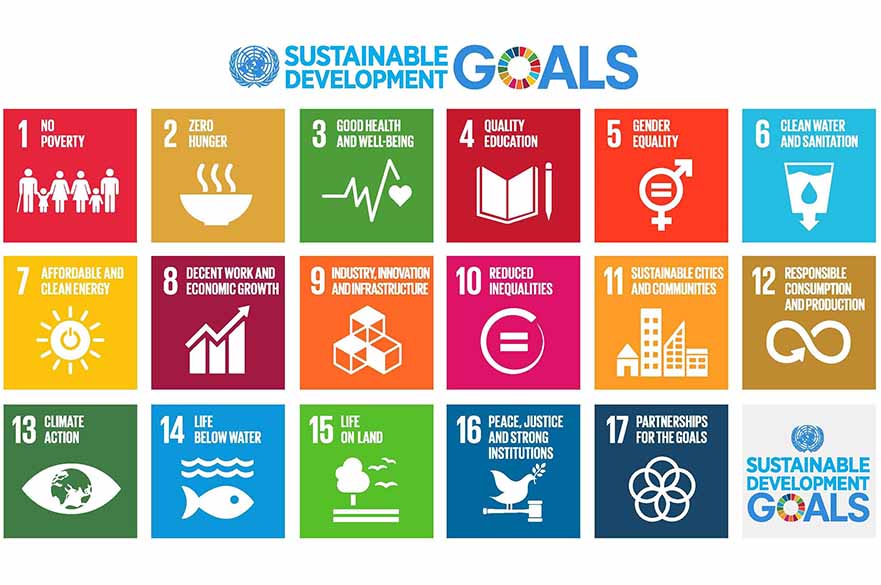In today’s blog, Conor Snowden, International Development Research Manager, explains the funds available for international development research, in particular the new Global Challenges Theme Development Fund.
More and more funding is available now from the UK Government to fund collaborative research for international development. The Global Challenges Research Fund (GCRF), Newton Fund and DFID development framework programme all support research to improve the lives of those who live in low and middle-income countries (LMICs). UK Government funding is worth up to £1.5bn a year and allows academics to link cutting-edge research with direct development impact and deliver on the sustainable development goals for some of the poorest globally.
Edinburgh Research Office International Development Research Hub
The University has received £3.8m from the Scottish Funding Council as part of our GCRF grant in 2019/20 to build the partnerships required to utilise these funds to maximum effect. Edinburgh Research Office has established an international development research hub to manage this funding and provide specialist support to researchers. We are funding projects on gender equality and research ethics to support our partnerships as well as funding Edinburgh Global to lead a series of high level programmes to deliver strategic partnerships and fellowships in Africa.
Global Challenges Theme Development Fund now open
Last week we also launched our new Global Challenges Theme Development Fund which is open to research staff across the University to start, develop and pump prime new research partnerships. This internal competitive call offers up to £40,000 for six-month projects to enable interdisciplinary clusters to advance an international development focused research theme in a strategic, coherent and targeted manner. Funding is intended to catalyse the development of enduring clusters and long-term partnerships in LMICs. We hope to fund at least 10 clusters.
Themes supported by this call should fall within the GCRF challenge areas:
Equitable Access to Sustainable Development
- secure and resilient food systems supported by sustainable marine resources and agriculture
- sustainable health and well being
- inclusive and equitable quality education
- clean air, water and sanitation
- affordable, reliable, sustainable energy
Sustainable Economies and Societies
- sustainable livelihoods supported by strong foundations for inclusive economic growth and innovation
- resilience and action on short-term environmental shocks and long-term environmental change
- sustainable cities and communities
- sustainable production and consumption of materials and other resources
Human Rights, Good Governance and Social Justice
- understand and respond effectively to forced displacement and multiple refugee crises
- reduce conflict and promote peace, justice and humanitarian action
- reduce poverty and inequality, including gender inequalities.
How to apply for this funding
Funding is flexible and can be used to support a wide range of activities, provided they are ODA compliant. The fund is open for both new themes and themes previously funded.
We anticipate that the kind of activities that could be undertaken through this fund will be diverse and want to provide flexibility in how it is used. We encourage partnerships with a diverse range of actors including universities, international and local NGOs, civil society organisations, charities, and government organisations.
Full details: Available on our website
Closing date: 18 November 2019. Please make sure you let your local research office know before applying.
For inspiration… Dr Michael Gallagher on digital education in sub-Saharan Africa
At our launch event we heard from Dr Michael Gallagher from Moray House School of Education who spoke about his smaller £20,000 theme development grant last year which brought together six organisations, across four countries, to explore the most pressing tertiary educational challenges in sub-Saharan Africa through digital education.
The funding helped develop a pan-African research cluster focusing on the role digital education has to play in reinvigorating tertiary education with clear articulation of the themes of greatest importance for the LMIC countries involved. It created a website to communicate the work of this cluster developed two research projects, based on the themes identified, which are currently underway. We hope that doubling the funding this year to £40,000 will allow bigger and deeper clusters to develop.
Slides from the launch event (University staff only)
Low and Middle-Income Countries Travel and Partnership Fund now open
Also open now is our LMIC Travel and Partnership Fund offering up to £3k awards to allow academics to make site visits to their overseas partners (in either direction) with a view to facilitating both research proposals and long term collaborations. This can be useful particularly for early career researchers who want to meet a partner for the first time or meet face to face to develop a research proposal. This fund is open all year but is limited so if you are thinking about submitting an application, don’t delay.



